Introduction
E-commerce businesses are embracing the power of machine learning to transform the way they interact with customers, optimize operations, and drive revenue growth. From personalized recommendations to automated marketing, machine learning algorithms are revolutionizing the e-commerce landscape. These intelligent systems analyze vast amounts of customer data, enabling businesses to tailor their offerings, enhance supply chain management, detect fraud, optimize pricing, predict customer churn, improve search functionality, and make data-driven decisions.
The strategic application of machine learning not only enhances the customer experience but also drives loyalty, growth, and market adaptability. As the adoption of machine learning continues to rise, e-commerce businesses are positioned to excel in the digital marketplace, staying ahead of the competition and delivering personalized, efficient, and engaging shopping experiences.
Enhancing Customer Experiences with Personalized Recommendations
E-commerce businesses are utilizing machine intelligence to convert large amounts of client information into customized shopping experiences. By analyzing browsing patterns, purchase history, and individual preferences, these algorithms provide product recommendations uniquely tailored to each individual, significantly increasing conversion rates and elevating the shopper's journey.
Machine learning plays a similar role in the success of platforms like Netflix, employing advanced algorithms to observe user behavior and customize content suggestions, thus ensuring subscribers remain engaged and satisfied. This approach, often likened to a personal TV matchmaker, has made Netflix a leader in content personalization.
The power of AI in analyzing feedback from individuals also cannot be overstated, as it enables businesses to align their offerings with consumer needs. The insights gained from AI-driven data analysis guide strategic decisions, including product development, targeting, and pricing.
Recent reports highlight the influence of AI on the European online business sector, revealing a rise in AI investment and significant revenue growth credited to AI applications in merchandising, search, and personalization. The implementation of AI isn't just for operational effectiveness; it also promotes growth in e-commerce teams by enhancing support for clients, improving search and recommendation systems, and streamlining automation.
Industry experts emphasize the importance of personalization in today's digital landscape, comparing it to the familiarity and understanding one experiences at their favorite coffee shop. This level of personal connection is what distinguishes companies in a competitive market. The contemporary idea of personalization goes beyond conventional communication channels, connecting with individuals on their preferred platforms at their convenience.
To illustrate the effectiveness of personalization, Spotify dedicates a significant portion of its homepage to algorithmically curated playlists. These playlists, customized to users' listening habits, make up almost half of the platform's listening time, illustrating the importance of personalization in guiding individuals through a potentially overwhelming range of options.
Ultimately, the strategic implementation of artificial intelligence in online retail is transforming the way businesses engage with their clientele, providing a tailored, streamlined, and immersive shopping journey that fosters allegiance and expansion.
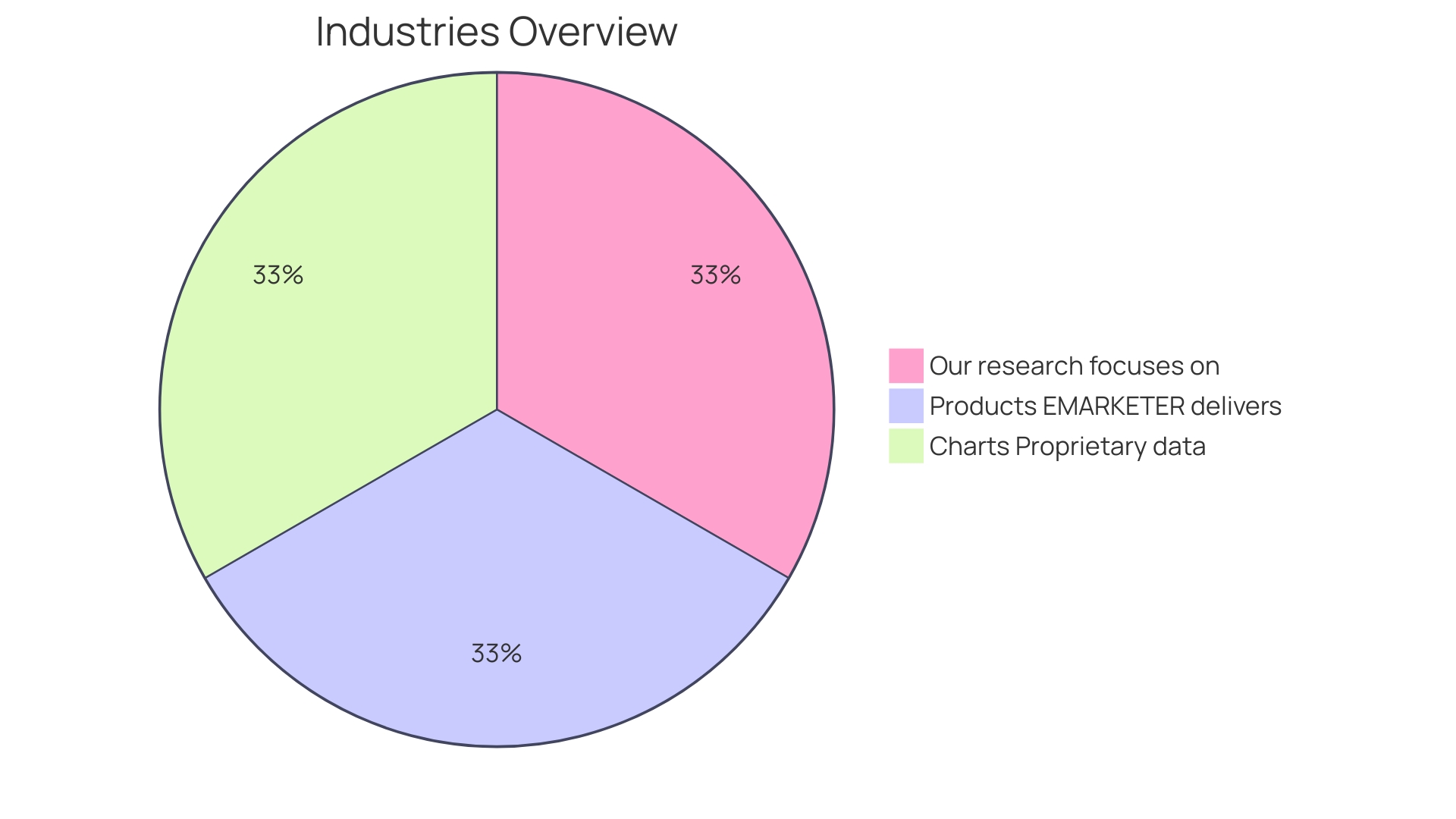
Automation of Repetitive Tasks and Customer Support
Machine learning is transforming online business by optimizing processes and improving user interactions. For instance, Zara employs AI throughout its operations including supply chain and inventory management, utilizing RFID tagging and real-time analytics to maintain a competitive edge. Similarly, Holiday Extras leverages AI to overcome language barriers in marketing and enhance data fluency across their teams.
AI-powered chatbots are a prime example of this innovation. They can handle inquiries from clients around-the-clock, providing immediate assistance and even facilitating transactions, which is essential for industries like online retail with high customer interaction volumes. In reality, more than 63% of retail companies are currently utilizing AI to enhance service to clients, with 40% creating specialized teams and budgets for this technology.
These automated systems not only reduce the need for human intervention, saving time and resources, but they also personalize the shopping experience. According to a study, 76% of e-commerce decision-makers who utilized AI reported an increase in revenue of 11% or more. Furthermore, AI in fields such as support, search, and recommendations has greatly enhanced online sales.
The incorporation of AI is not only about effectiveness; it's about improving every interaction in the journey. Lifecycle automation, which optimizes customer interactions from acquisition to retention, exemplifies the strategic use of AI to enrich customer experiences and achieve business success.
As more businesses adopt AI, the workforce is also expanding. In contrast to the notion that AI could take over jobs, 62% of decision-makers think it will actually expand the scope of their online business teams. This points to Ai's role as a supportive tool that empowers employees, rather than one that renders them obsolete. The future of online business lies in embracing AI to create more dynamic, responsive, and customer-centric business models.
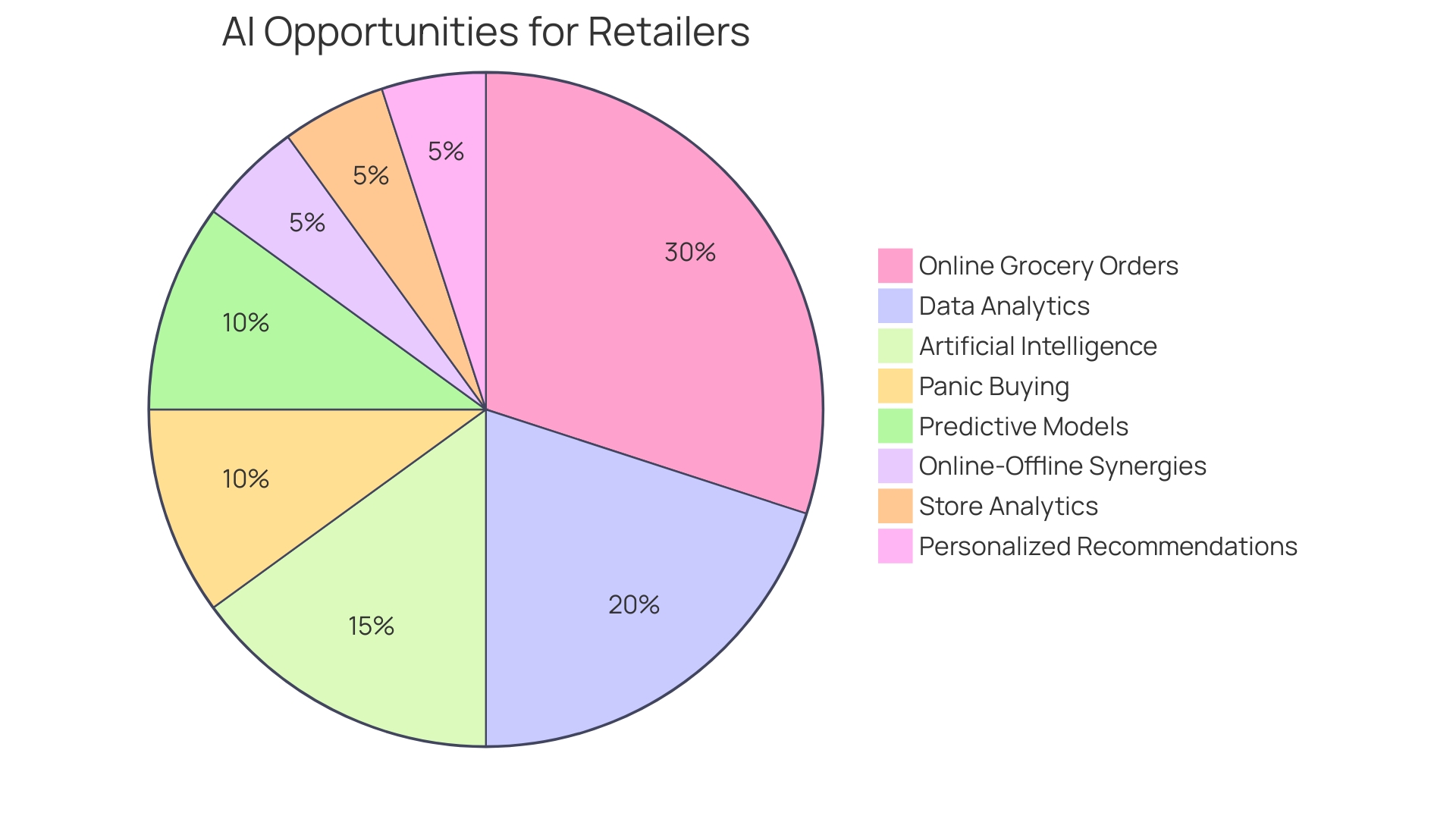
Optimizing Supply Chain Management and Inventory Levels
Utilizing the potential of automated intelligence in online business can greatly improve logistics management and stock management. By tapping into historical sales figures, current market trends, and intricate data analysis, these intelligent algorithms offer precise demand forecasting. Such predictive prowess enables businesses to maintain an optimal stock level, striking a balance between demand satisfaction and inventory overhead. Success stories like Auchan Ukraine's implementation of an advanced algorithm that effortlessly scaled to other countries, including Romania and France, demonstrate the tangible benefits. This model not only supported daily forecasting for an extensive range of products spanning 22 hypermarkets but also provided a granular 55-day outlook. The result was a substantial reduction in both stockouts and overstock by 18% within a year.
In a landscape where 46% of healthcare companies are employing AI for supply chain foresight, the value of adaptability cannot be overstated. Furthermore, the retail sector's push towards sustainable practices resonates with consumers, 73% of millennials being willing to pay more for sustainable offerings. This shift towards environmentally conscious consumption reinforces the need for e-commerce platforms to utilize AI in optimizing their supply chains.
Advancements in AI, such as ThroughPut AI, recognized by Gartner for analytics and decision intelligence in supply chains, equip decision-makers with actionable insights, leading to improved decision quality and supply chain performance. The multi-echelon inventory management approach highlights how interconnected decisions across the supply chain are crucial, a lesson hard-earned during the global pandemic when essential goods faced critical shortages.
Incorporating cross-functional teams in the development and deployment of these models ensures alignment with business goals and addresses specific forecasting challenges. Continuous model refinement, based on user feedback and performance data, fosters innovation while maintaining ethical standards in data handling and AI applications. Predictive and prescriptive analytics, as exemplified by Nor1's upsell solutions, demonstrate the potential of advanced data analysis to not only forecast demand but also to recommend optimal actions.
To sum up, the incorporation of advanced computational techniques into logistics and supply chain management in the digital marketplace is not only a technological enhancement but also a strategic necessity. It is a step towards greater efficiency, client satisfaction, and a sustainable future, all while navigating the complexities of today's dynamic market.
Fraud Detection and Security Measures
Utilizing the potential of machine intelligence (MI) has become a game-changer in fighting e-commerce fraud. With the sophistication of fraudulent schemes escalating, ML models are increasingly crucial in identifying and preventing fraudulent transactions, safeguarding businesses and customers alike. These intelligent systems are trained using vast datasets, like those available from Kaggle, to recognize patterns and irregularities indicative of fraud. Deepcheck's platform exemplifies this technology in action, validating and testing ML models to ensure robust online payment fraud detection.
Fraud detection extends beyond simple anomaly recognition—it's a proactive stance against intentional, malicious acts designed for deceitful gains. Unlike anomalies that might arise from random variations or errors, fraud is systematic and cunning, often buried within seemingly normal transactions. With the global cost of fraud reaching a staggering $42 billion in 2020, the implementation of ML in fraud prevention isn't just beneficial—it's imperative.
ML's ability to parse through data, learning from each transaction, equips it with the proficiency to flag activities that deviate from the norm. This constant analytical vigilance is vital, especially in the financial sector where credit card fraud, the most frequently reported payment fraud, results in significant losses. In the face of such challenges, ML's predictive prowess is not just about detecting fraud; it's about understanding its mechanics and devising strategic defenses.
The deployment of ML in fraud management is a testament to its efficacy, as seen in the recent advancements of checkout-free technology like the one powering Dublin Town To Go store at Dublin Airport. Innovations like these rely on ML to ensure seamless, secure transactions, demonstrating the potential of ML to revolutionize retail systems and enhance consumer experiences.
As we delve into the realm of fraud analytics, it becomes clear that the field is ripe for exploration and organization. The literature reveals a need for a framework that encompasses the diverse methodologies and domains within fraud analytics. Such a framework would not only streamline research efforts but also guide future inquiries into the most effective applications of data-driven methods for fraud detection.
Essentially, the incorporation of ML in online trade deceit identification is more than just a technological enhancement but a strategic necessity, providing enterprises with a powerful defense against the constantly evolving dangers of monetary deceit.
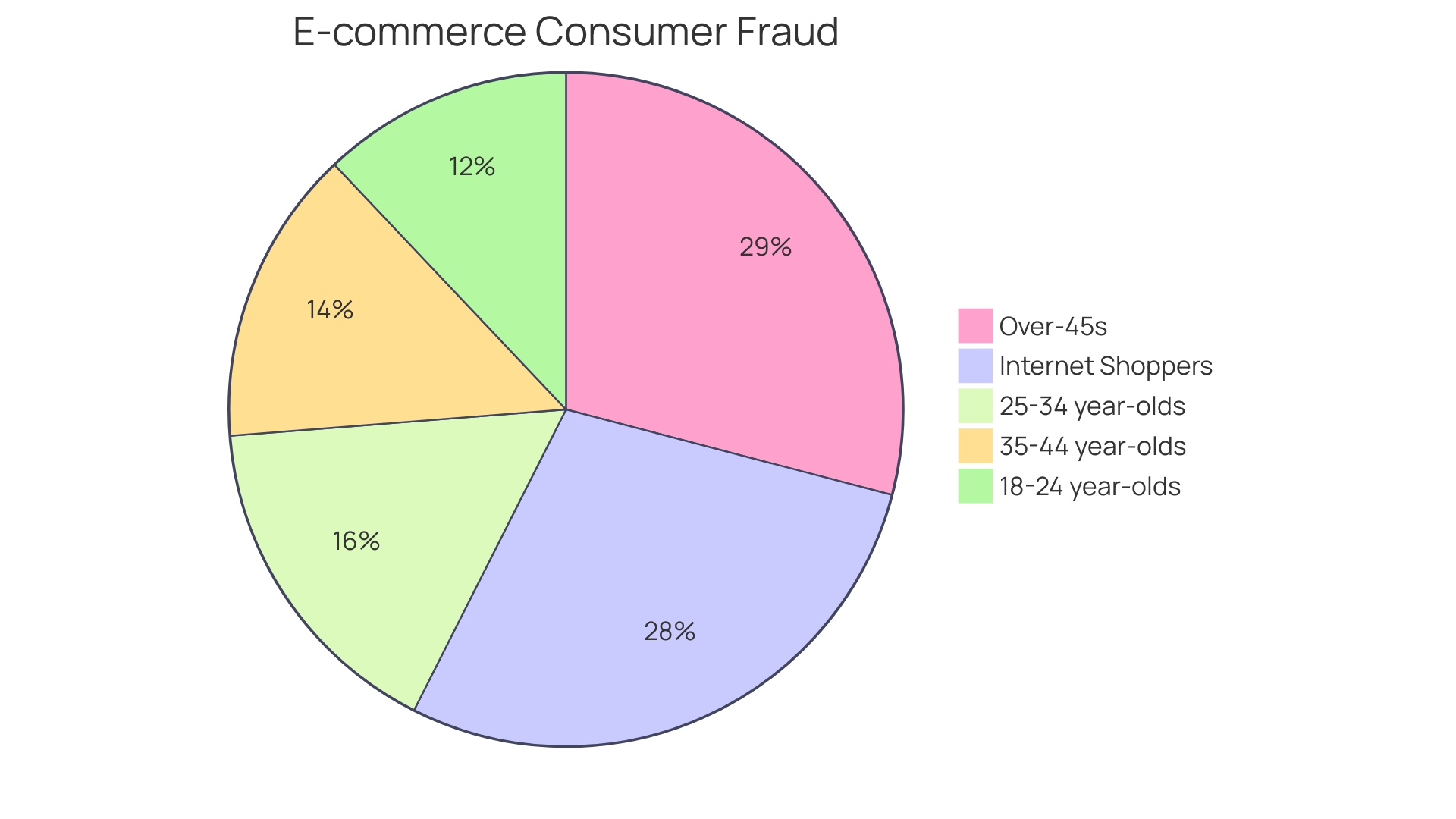
Dynamic Pricing Strategies and Real-Time Adjustments
The art of pricing in the e-commerce landscape has evolved into a strategic dance, largely influenced by an intricate interplay of market demand, supply constraints, and consumer behavior. Artificial intelligence algorithms have become pivotal in deciphering this complex dynamic, granting businesses the agility to adjust prices with precision. Traditional models of pricing, where equilibrium between demand and supply dictates the market value, are being revolutionized by data-driven insights that allow for real-time responsiveness to market fluctuations.
Organizational factors like inventory levels and budget limitations, along with the marketing mix elements of product life cycle, promotion, and distribution, are now being seamlessly integrated into pricing strategies. This comprehensive strategy for pricing utilizes artificial intelligence to move closer to the elusive 'Right Price'âa balance of optimal profitability and market competitiveness. By utilizing advanced algorithms, businesses in the online retail industry are not simply setting prices passively, but instead actively participating in a strategy known as 'perfection pricing,' constantly readjusting to match the incremental production costs and customer's willingness to pay.
Recent events have highlighted the urgency of adopting such dynamic pricing models. For instance, the restaurant industry, with companies like Wendy's, has faced public scrutiny over surge pricing practices, underscoring the delicacy required in implementing dynamic pricing in new sectors. Despite the challenges, this practice is not new; industries such as airlines and hotels have long utilized seasonal and demand-based pricing strategies, adjusting costs to match consumer demand peaks and troughs.
In the online shopping industry, giants like Amazon demonstrate the pinnacle of dynamic pricing, with reported price changes happening millions of times daily, tailoring prices down to the minute. This level of specificity is made possible by algorithms that digest vast quantities of data, enabling businesses to anticipate and respond to market trends with unprecedented speed and accuracy. As directors in the field of online business navigate through these intricate and swiftly changing pricing environments, the incorporation of artificial intelligence into their pricing strategies is not merely a choice but an essential element for continuous expansion and market adaptability.

Improving Customer Retention through Churn Prediction
Leveraging the potential of machine learning, e-commerce businesses are reversing the trend on client attrition, converting large quantities of client data into predictive insights. By utilizing advanced algorithms, like Support Vector Machines (SVM), companies can identify the indicators of disengagement and implement targeted retention campaigns. Tailored promotions and preemptive support are just the beginning; these data-driven techniques are integral to nurturing enduring customer relationships and enhancing the lifetime value of each customer.
The efficiency of artificial intelligence in reducing customer attrition is supported by a strong body of research encompassing sectors such as telecommunications, finance, and online gaming. A case in point is Auchan Ukraine's application of forecasting models across multiple national markets, enhancing their promotional strategies with up to 55-day forecasts for food product demand at individual stores.
Recent findings from the European online retail industry highlight the growing investment in AI and machine learning despite economic challenges. A staggering 86% of decision-makers are intent on expanding their AI initiatives, with 76% reporting a revenue surge of 11% or more, courtesy of AI applications in merchandising, search, and personalization.
Additionally, the emergence of Large Language Models (LLM) indicates that AI will penetrate the complete value chain of online businessâfrom acquiring clients to fulfilling orders. This technological advancement is expected to grow, not reduce, e-commerce teams, with support, search, and automation identified as the top three areas where AI has significantly enhanced results.
Such advancements define a new era where the art of retaining clients becomes a precise science. E-commerce entities that adopt these tools not only outmaneuver churn but also set new benchmarks for customer satisfaction and business growth.
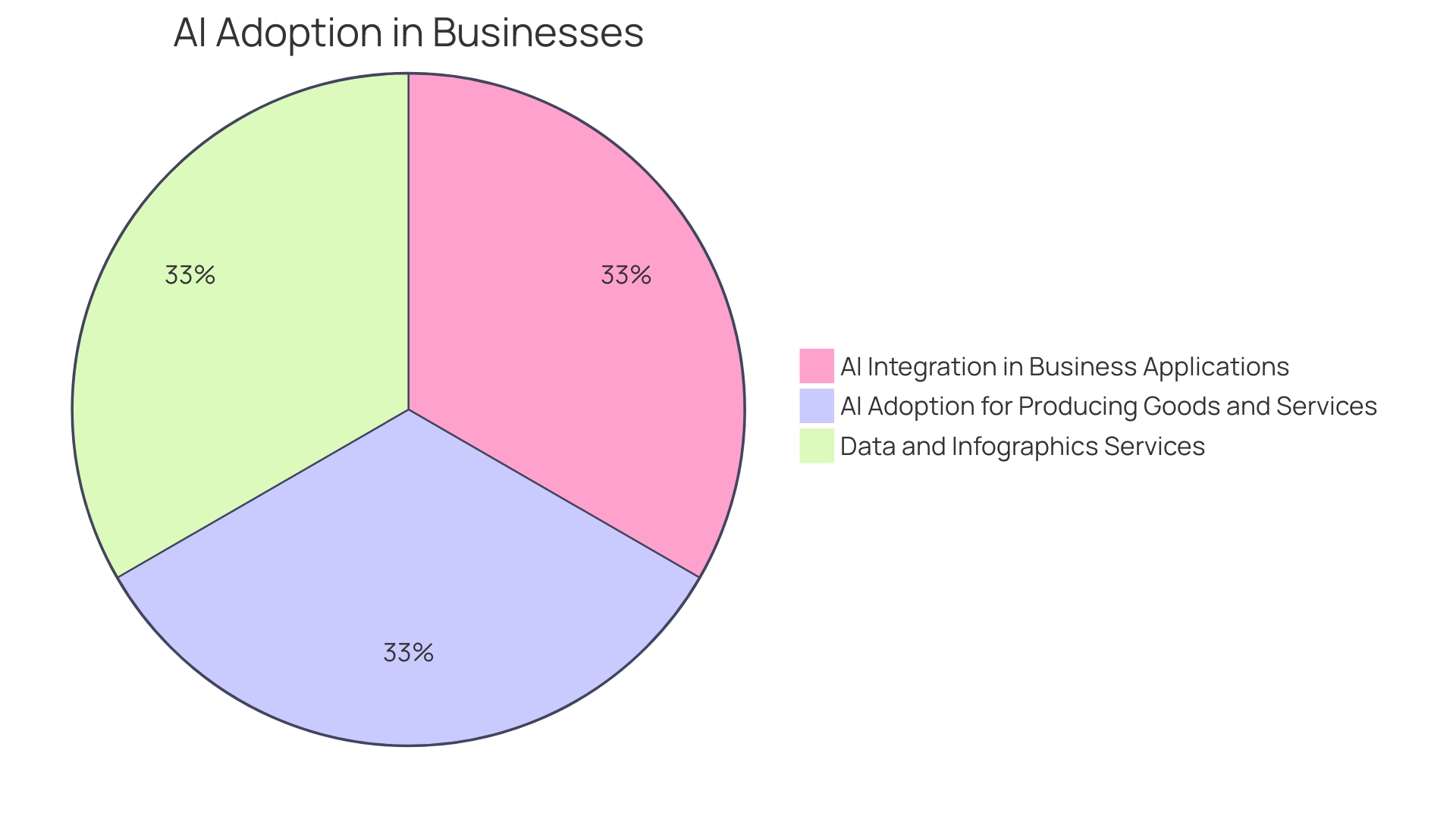
Enhanced Search Functionality and Contextual Shopping
Enhancing the search functionality on e-commerce platforms is not just an optional upgrade; it's a strategic necessity. With the integration of machine learning algorithms, the precision of search results, the relevance of product recommendations, and the overall shopping experience are significantly improved. These algorithms are skilled at interpreting user intent through natural language processing, which enables individuals to use their own language to locate precisely what they're searching for. A prime example is the Adevinta marketplace project, which brought to life a conversational search assistant that revolutionizes product discovery.
The impact of such advancements is evident. For example, a prominent European fashion platform for online shopping addressed the challenge of their vast product catalog by implementing an AI-based system. This system not only automated the process of generating detailed product descriptions but also enriched the search experience with comprehensive tagging. The outcome? A more intuitive, navigable, and secure shopping environment that resonates with the expectations of individuals.
Current reports suggest that a vast majority of online business decision-makers are eager to increase their AI investments, with a notable percentage attributing a double-digit revenue growth to AI applications in search and personalization. As more consumers are turning to AI to assist with their online shopping, the ability to deliver a tailored and efficient search experience has become a pivotal factor in cultivating customer loyalty and driving conversions.
The game-changing capability of artificial intelligence in e-commerce is highlighted by the growing adoption of AI by consumers for online shopping support, indicating a change in consumer behavior that demands marketers to quickly adjust. With AI, businesses are not only able to create content in volume but also of a higher quality that adds value to the user experience. As artificial intelligence continues to innovate at a rapid pace, businesses that leverage its potential are positioning themselves for success in the digital transformation race.
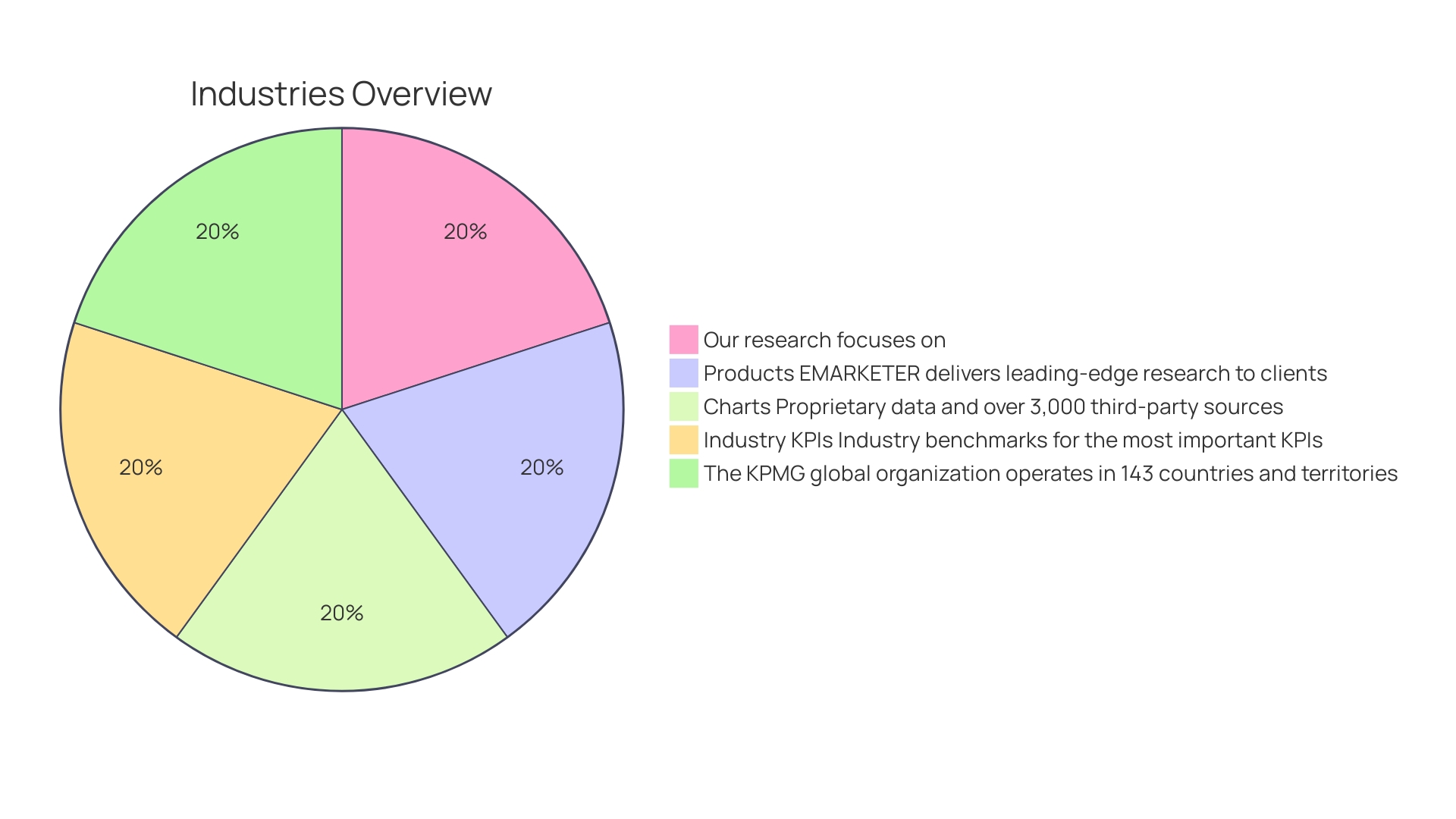
Automated Marketing and Customer Segmentation
Online businesses are utilizing artificial intelligence to transform the way they engage with clients. By carefully examining data and behavior, these algorithms can automate entire marketing campaigns, tailoring content to the specific preferences and characteristics of various segments. The results are compelling: marketing messages tailored to specific groups significantly boost engagement and conversions.
For instance, imagine an automated marketing loop with five stages, each automated step-by-step, including ad generation. In this scenario, machine learning swiftly handles the creation of numerous ad variants for different platforms, like Facebook, which requires a dizzying array of aspect ratios, sizes, and stylistic elements. The process, which might overwhelm human marketers, is streamlined and made efficient through AI.
Further enhancing this is AI's skill in segmenting clients. Platforms like Viable offer AI-powered tools that automatically classify individuals based on shared traits and behaviors. This segmentation is key to delivering differentiated marketing materials and pricing strategies tailored to meet specific needs, rather than a one-size-fits-all approach.
In the rapidly changing landscape where 40% of consumers regularly turn to AI for online shopping assistance, marketers acknowledge the need for an AI-driven overhaul in strategies. Machine intelligence is not just about creating content in abundance but about improving quality and adding value for the customer. Through AI, a marketer's role becomes more crucial, leveraging human ingenuity and creativity to maximize the potential of these advanced tools.
The impact of machine intelligence extends to data preparation - traditionally a task susceptible to human error. Machines excel in cleaning and formatting vast amounts of data more quickly and accurately than humans, paving the way for more effective marketing decisions. This ability is highlighted by the projected expansion in the artificial intelligence market, anticipated to reach an astonishing US$503.40bn by 2030.
In essence, the incorporation of artificial intelligence into e-commerce marketing isn't merely a fad; it's a revolutionary power restructuring how businesses engage with customers and propelling unparalleled growth in the digital marketplace.
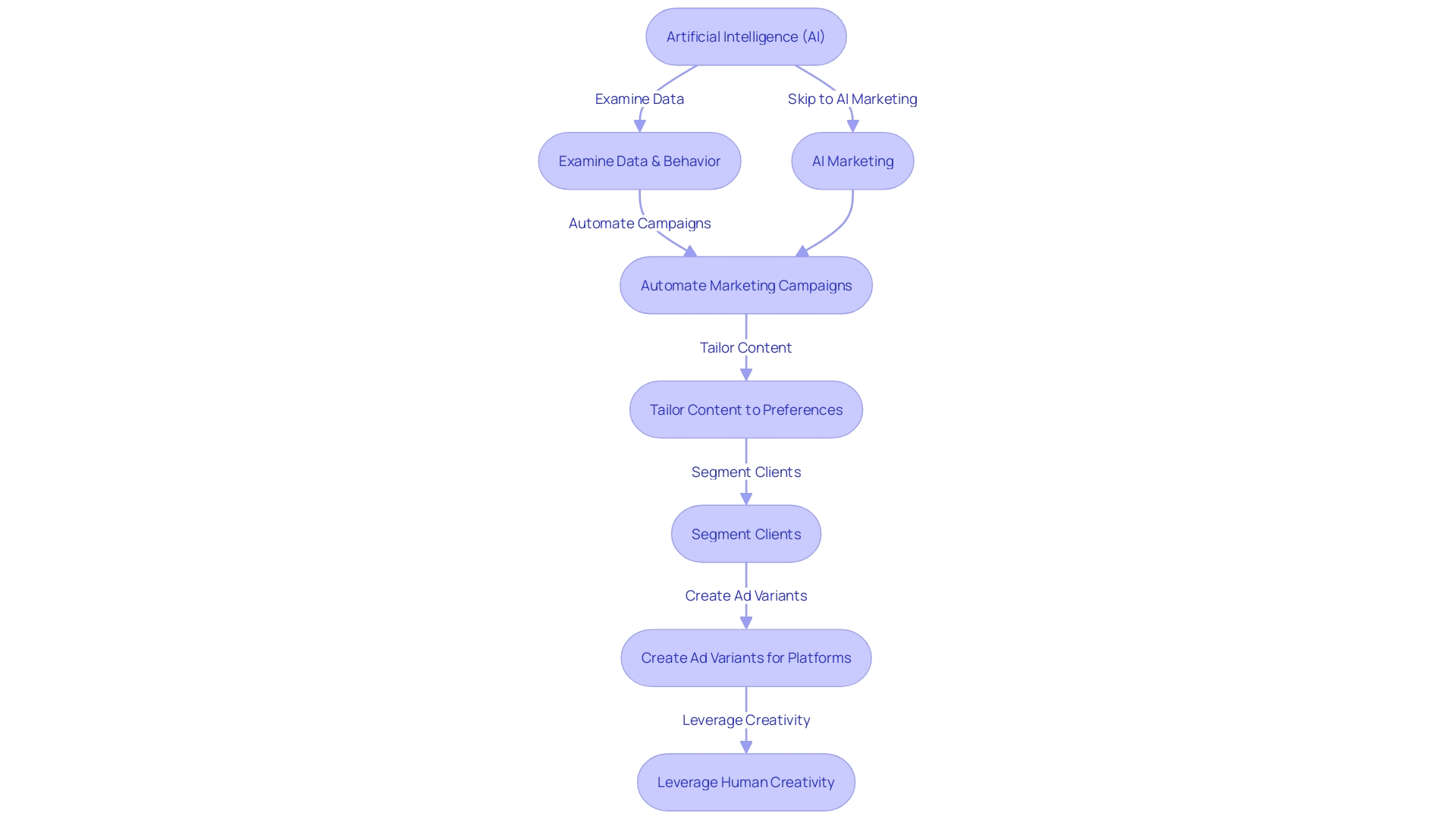
Trend Analysis and Data-Driven Decision Making
E-commerce businesses are quickly adopting artificial intelligence to analyze extensive data sets, revealing insights into market trends, consumer preferences, and emerging patterns that were previously indiscernible. These advanced algorithms, a subset of artificial intelligence, are not just passive tools but active learners. They constantly enhance their expertise through natural language processing and reinforcement, becoming more skilled with each interaction, much like the model developed for Auchan Ukraine which was successfully extended to other countries.
The impact of such technology is profound, enabling real-time predictive modeling that can forecast demand with unprecedented accuracy. Auchan's journey in optimizing promotional strategies is a testament to this, where advanced technology reduced stockouts and overstock by a striking 18% in just a single year. By aligning supply with the ever-fluctuating customer demand, online businesses can ensure optimal inventory levels, enhancing customer satisfaction and streamlining operations.
Moreover, with 40% of online consumers now routinely turning to AI for shopping assistance, the pressure is on for brands to overhaul their marketing strategies. The goal is no longer to generate a sheer volume of content but to create high-quality content that resonates with and adds value for the consumer. By utilizing artificial intelligence, companies can customize their marketing strategies with accuracy, delivering content and product recommendations tailored to individual browsing habits and purchasing history.
The incorporation of artificial intelligence is transforming the online retail environment, bringing forth a fresh era where digital and physical experiences converge effortlessly. This omnichannel approach requires a profound comprehension of how individuals interact across different platforms, highlighting the user experience's role in driving effective marketing channels. As industry leaders highlight, the challenge lies not just in harnessing the wealth of consumer behavioral data but in extracting, comprehending, and applying it effectively to stay ahead in a highly competitive market.
The data and figures reveal the immense possibilities of automated intelligence in online business. The market, currently valued at US$79.29 billion, is projected to expand at a CAGR of 36.08%, reaching a staggering US$503.40 billion by 2030. This development highlights the wide-ranging applications of artificial intelligence, from improving customer service with chatbots to optimizing marketing campaigns with predictive modeling. As the technology continues to evolve, its adoption across various industries is poised to redefine what it means to operate an online business successfully.
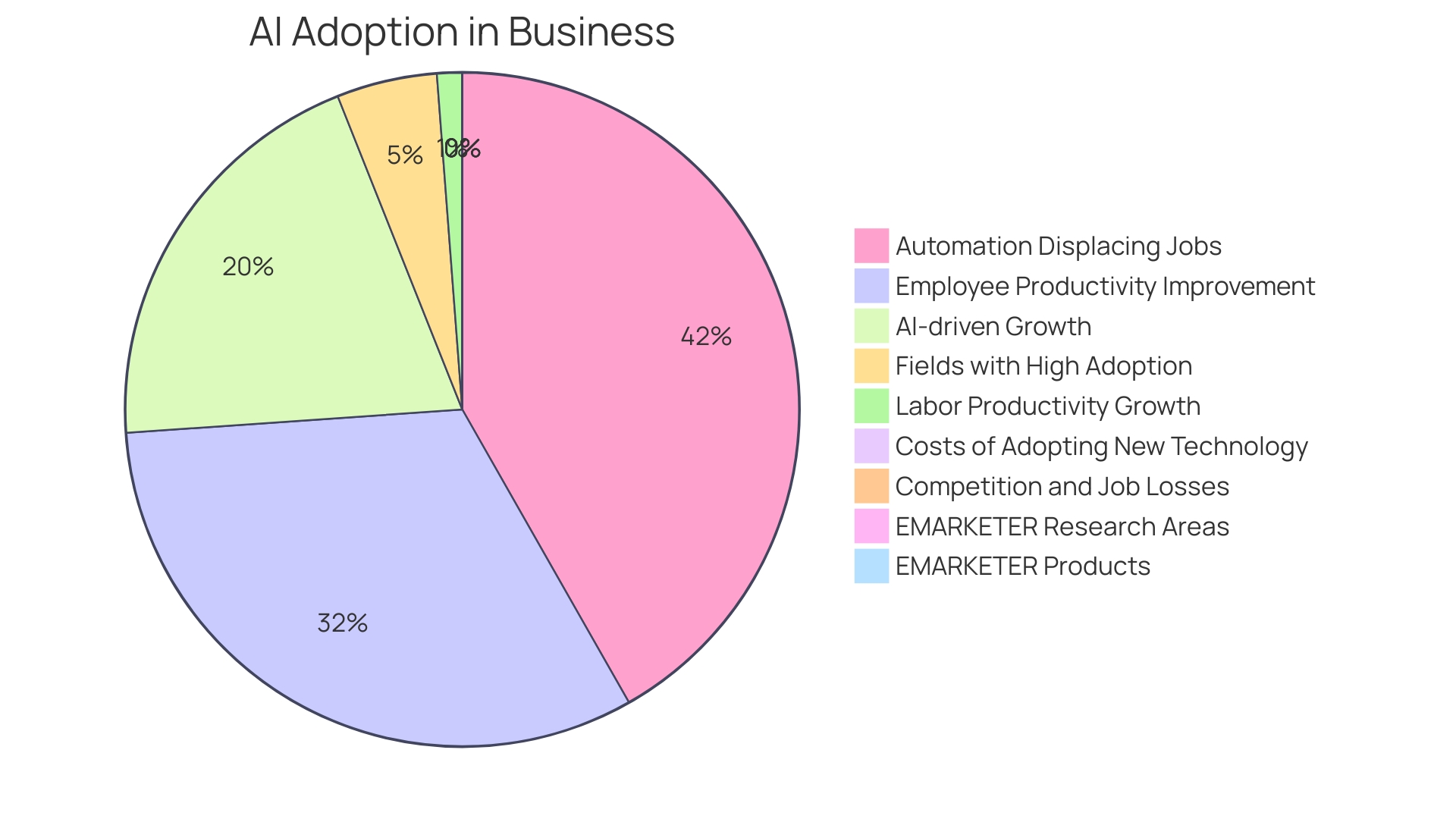
Real-Life Examples of Machine Learning in E-commerce
The game-changing potential of ML in e-commerce is no longer just a concept but a reality that top market players are taking advantage of. Giants such as Amazon, Netflix, and Spotify have set industry benchmarks by harnessing ML to curate personalized experiences, refine search operations, and fine-tune pricing mechanisms. This strategic application of ML has proven instrumental in bolstering customer satisfaction, enhancing conversion rates, and propelling revenue growth.
The distinction between AI and its subset, machine learning, is crucial to comprehend. While AI encompasses a broader spectrum of technologies capable of performing tasks that typically require human intelligence, ML specifically refers to systems that learn and adapt from data without explicit programming. The practical implementation of this can be observed in the realm of retail, where Auchan, an international retail group, undertook the ambitious project of devising a promotional forecasting model. By leveraging ML, NLP, and deep domain expertise, Auchan significantly reduced stockouts and surplus inventory by 18% within a single year, exemplifying the efficacy of ML in retail management.
Recent findings about the European online shopping environment highlight the increasing investment in AI and ML technologies, despite economic uncertainties. An impressive 86% of online retail decision-makers plan to enhance their AI investments, correlating with a reported revenue increase of 11% or more for 76% of those adopting AI. Specifically, the integration of AI in merchandising, search functions, and personalization has yielded the highest sales uplift for online retailers. Moreover, advancements in Large Language Models (LLMs) signal the potential for AI to permeate the entire e-commerce value chain.
Integrating ML into retention strategies provides a notable competitive edge, as it allows businesses to analyze client data and user behavior, identifying areas of the shopping experience that may result in churn. For instance, identifying patterns in customer service interactions that deter repeat business can inform efforts to enhance the customer service experience. Furthermore, machine learning plays a crucial part in protecting against fraud in online business by identifying abnormalities in payment data, thus enhancing transaction security.
Sur La Table, a Seattle-based retailer, illustrates the profound impact of AI in e-commerce. By utilizing AI-powered predictive analytics, the company has overhauled its product pages and recommendation tools, making the shopping experience more relevant for the consumer. This approach has been pivotal in engaging customers and facilitating conversations, with the use of AI in extracting and summarizing key product details from customer reviews, aiding shoppers in making informed purchase decisions.
The trend towards AI and ML adoption in online business is undeniable, with 91.5% of companies investing in these technologies. Although ML doesn't typically reduce operational costs, it has been instrumental in driving revenue, as indicated by 80% of respondents in a McKinsey report. The key to harnessing the full potential of ML lies in identifying manual, repetitive, and costly tasks within the business process, evaluating their complexity, and estimating the return on investment to identify the most impactful use cases.
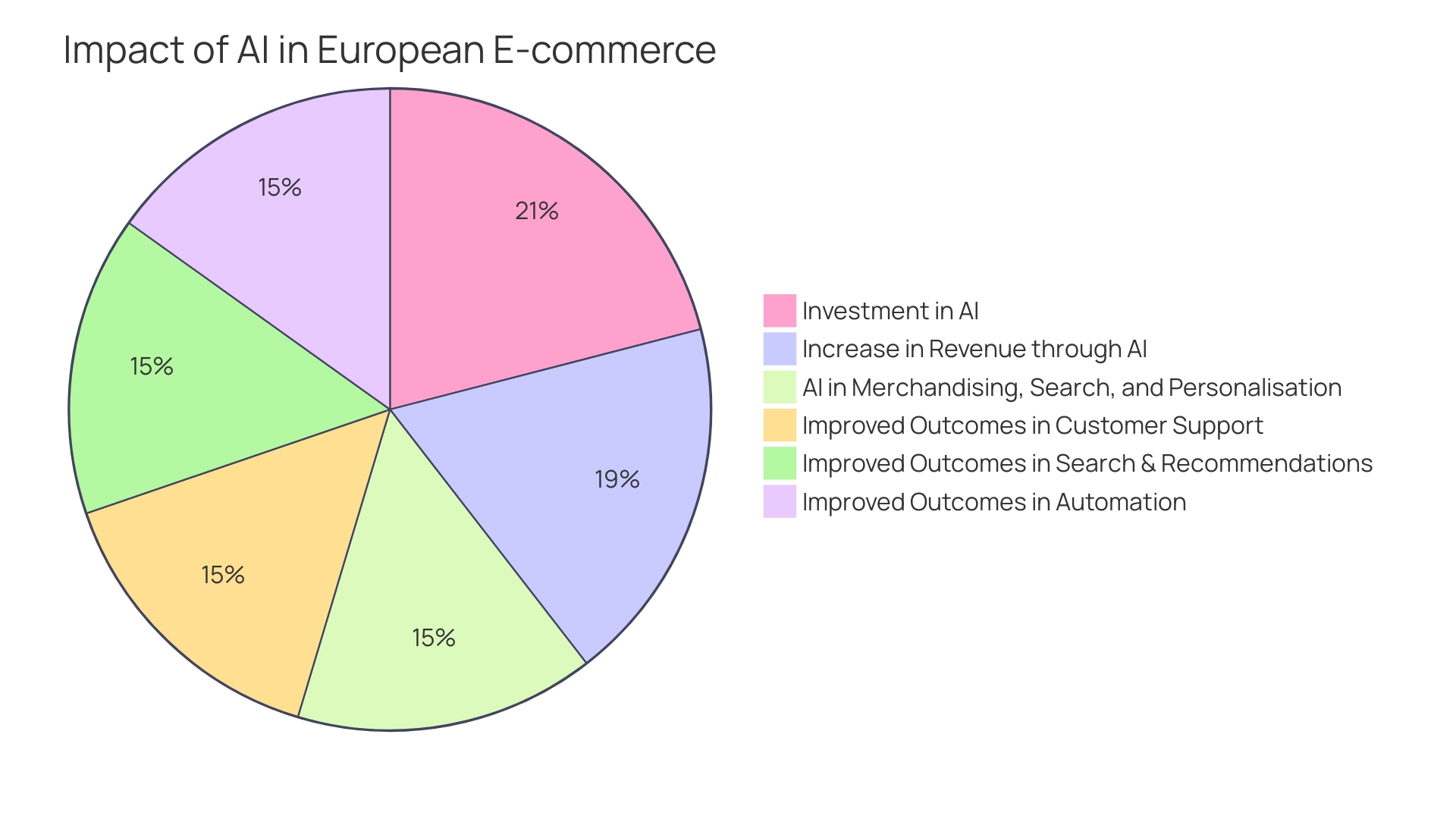
Best Practices for Implementing Machine Learning in E-commerce
To successfully implement advanced computing techniques within the e-commerce industry, it's crucial to comprehend the practical measures that result in notable enhancements in different facets of the business. Axfood, Sweden's second-largest food retailer, exemplifies this by utilizing a decentralized data science team approach in conjunction with a central data platform team. This strategy has led to the successful deployment of ML models through Amazon SageMaker, enhancing their digital transformation journey.
The allure of automated intelligence lies in its predictive capabilities. For example, algorithms that utilize artificial intelligence can analyze various factors, such as seasonality, market trends, and past sales data, to predict product demand with remarkable accuracy. This predictive power is not merely speculative; tools like Blue Yonder leverage historical data to make informed inventory stocking decisions, ensuring optimal product availability.
Moreover, advanced ML models have the potential to transform experiences. Through personalizing product recommendations, artificial intelligence can enhance the shopping experience. Imagine a customer browsing winter coats; an ML-powered recommendation system could suggest similar items based on their preferences, akin to Google's recommendation engine, thus increasing the likelihood of a purchase.
In the wider framework of online business operations, artificial intelligence plays a crucial role in enhancing supply chains and simplifying workflows. Its role is so significant that the adoption of AI and ML tools has surged in recent years. The market for artificial intelligence is expected to grow significantly, with projections suggesting a market volume of US$503.40bn by 2030.
The use of automated intelligence in online business is not without its difficulties. It demands a solid pipeline from data collection to model deployment, a clear business objective, and a commitment to maintaining data traceability. As one industry expert puts it, the essence of success in ML applications is treating the challenges as engineering problems, where the selection of features often trumps the complexity of the algorithms.
To sum up, as we observe the emergence of cutting-edge retail solutions such as Dublin's cashierless store, enabled by Zippin technology, it's clear that machine intelligence is leading the way in the evolution of online business. It is not about replacing human roles but empowering them to act on the insights gained from AI, ultimately leading to a more efficient and customer-centric business model.
Future Innovations and Challenges in E-commerce Machine Learning
Machine learning in e-commerce is progressing quickly, transforming the way retailers engage with their clients. Augmented reality, voice assistants, and sophisticated recommendation systems are at the forefront of enhancing the shopping experience. For example, the utilization of AI to extract important information from reviewsâsuch as accuracy of size and details of fabricâaids in simplifying the decision-making process for shoppers, who no longer have to search through numerous comments to find what they require.
Zara's strategic integration of AI across its operations, from supply chain management to client engagement, exemplifies how embracing these technologies can maintain a competitive edge. Their Just-In-Telligent system for inventory and logistics exemplifies real-time optimization at work. Similarly, AI-powered size recommendation systems, which analyze millions of data points to tailor suggestions, have proven to increase purchase rates and customer satisfaction.
Recent reports emphasize that despite economic challenges, investment in AI is increasing within the European online retail sector. A significant majority of decision-makers plan to increase their AI budgets, with many already witnessing a revenue boost of 11% or more due to AI applications in merchandising, search, and personalization. Moreover, advances in Large Language Models (LLMs) suggest that AI will become integral to the entire e-commerce value chain.
AI's role in personalization is particularly noteworthy. With machine learning algorithms, businesses can anticipate the requirements and preferences of clients with impressive specificity. For example, predictive analytics using AI can accurately forecast product demand, allowing for more precise inventory stocking and avoiding overstocking or stockouts. Moreover, AI is not just improving support and search recommendations but is also paving the path for greater automation.
The impact of AI on e-commerce is extensive, promising to redefine how businesses operate and engage with their clients, and those who leverage these technologies can expect to see significant improvements in their operations and customer relations.

Conclusion
In conclusion, the strategic integration of machine learning in e-commerce is revolutionizing how businesses interact with customers, offering personalized shopping experiences that drive loyalty and growth. Machine learning algorithms analyze customer data to tailor offerings, optimize operations, detect fraud, and make data-driven decisions.
By harnessing machine learning, e-commerce businesses can enhance the shopper's journey with personalized recommendations, automated marketing, and efficient customer support. This leads to increased engagement, conversions, and customer satisfaction.
Machine learning also improves supply chain management by offering precise demand forecasting, reducing stockouts and overstock. This optimizes inventory levels, ensuring customer satisfaction and operational efficiency.
In the realm of fraud detection, machine learning models identify and prevent fraudulent transactions, safeguarding businesses and customers. This proactive defense enhances transaction security and consumer experiences.
Dynamic pricing strategies driven by machine learning enable businesses to adjust prices with precision, maximizing profitability and competitiveness. This personalized pricing approach drives revenue growth and market adaptability.
Churn prediction powered by machine learning allows businesses to retain customers by identifying disengagement precursors and deploying strategic retention campaigns. This nurtures customer relationships and increases lifetime value.
Machine learning enhances search functionality, improving the precision of search results and product recommendations. This enhances the overall shopping experience, driving customer loyalty and conversions.
Automated marketing and customer segmentation driven by machine learning personalize content and deliver differentiated marketing materials. This boosts engagement and conversions, meeting specific customer needs and driving revenue growth.
Machine learning enables data-driven decision making by unveiling market trends, consumer preferences, and emerging patterns. This empowers businesses to make informed decisions, optimize supply chains, and drive revenue growth.
In conclusion, the integration of machine learning into e-commerce delivers personalized, efficient, and engaging shopping experiences that drive loyalty and growth. Embracing machine learning is crucial for businesses to excel in the digital marketplace, stay ahead of the competition, and achieve market adaptability.





